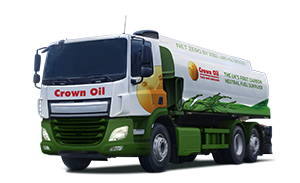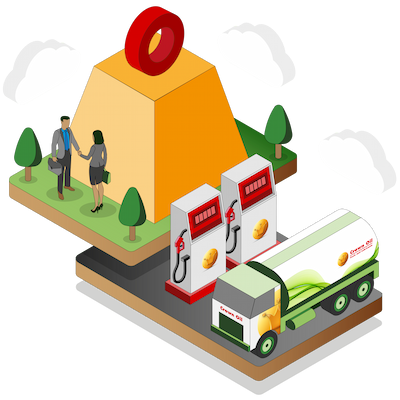Our Most Frequently Asked Diesel, Fuels and Oils Questions Answered
As a UK leading fuel supplier, we often get asked questions by our customers about our diesel, fuels & oils. So we’ve put together some FAQs below to help answer any queries you might have.

Q: What are your current diesel prices?
A: Due to the fluctuating price of diesel, we are unable to provide an accurate, real-time price on our website. However, if you call a member of our team on 0330 123 1444, they will be more than happy to provide a no obligation competitive quote for you.
Q: What is your delivery area?
A: We deliver our diesel, fuels and oils nationwide. Our supply locations are spread across the whole of the UK, giving us greater flexibility to be able to deal with your fuel request.
Q: When can you deliver?
A: A next day delivery service is provided, with most deliveries made within 48 hours of order. But if you’re in an emergency, we will do our best to deliver to you the same day made possible by our emergency delivery service. Every effort will be made to make the delivery at a time convenient for you.
Q: What if I only need 500 litres; can you still deliver my oil?
A: Yes. No delivery is too large or too small for us, as we have an extensive range of tankers to suit you. Whether that’s a full 36,o00 litre delivery on an articulated tanker right down to a 500 litre supply on our ‘baby tanker’, we have the equipment to fulfill your needs.
Q: Can you make unattended deliveries?
A: Yes, as long as we can access your oil tank easily and safely, and instructions of any requirements.
Q: How do I know how much oil was delivered?
A: All our deliveries are monitored by the tanker’s meter, and you will receive a printed reading to show you the precise amount dispensed.
Q: What is the minimum delivery?
A: The larger the delivery, the more money you save, so we recommend purchasing in bulk to save on regular delivery costs. For smaller deliveries, we can supply your fuel in a 205-litre drum if you don’t have the storage space onsite or need to transport it from one place to another.
Q: How long is the hose on your tanker?
A: Our tankers have hoses from 100ft to 150ft to ensure we can deliver your oil quickly and efficiently even if your tank is hard to get to.
Q: Do you supply tanks?
A: Yes, we supply a vast range of plastic and metal tanks in a wide range of sizes – and all other ancillary products to help you handle your fuels safely.
Q: Can you supply equivalent lubricants?
A: Yes, we supply and blend a wide range of lubricants specially formulated for your needs, whether that may be fully synthetic, semi-synthetic or mineral based, we have the oil for you.
Q: Do you offer any technical support?
A: Yes, we have an experienced on-site chemist that can always help; just email us at technical@crownoil.co.uk or simply call 0330 123 1444 for any technical advice.
Q: What is the lifespan of diesel?
A: Depending on how the product is stored, a shelf life of 18-24 months is feasible from new. We recommend that you replace diesel after storing it for over two years. After this period, pre-use filters may need frequent replacement due to excessive bacteria, water and dirt building up inside the fuel tank. To prevent fuel quality and engine performance from deteriorating, we recommend fitting tank desiccant breathers or keeping the tank as full as possible. This will prevent any moisture condensing in the headspace. We also recommend investing in regular fuel tests by a qualified company to avoid any contamination issues.
Q: Do you offer an automated tank top up service (signalman)?
A: Yes. To ensure you never run out of oil, we’ve invested in an automated tank top-up system that will take the worry out of ordering your oil. This simple system works with a probe in your tank that telephones Crown Oil when your oil level gets down to an agreed level.
Q: What payment terms do you offer?
A: We offer flexible payment terms either by direct debit, visa/master card, cheque, cash or standing order.
Q: Are your prices competitive?
A: Yes. In today’s ever-competitive transport industry, our prices are checked daily, and we always do our best to offer you extremely competitive prices.
Q: How can I find out about oil storage rules and regulations?
A: Oil storage is highly regulated within the UK. It is a legal requirement to store fuel in a safe, responsible and environmentally friendly way since even a small oil spillage can devastate the local environment. Click here to download our oil storage factsheet to help you ensure your storage tank complies with the current rules and regulations.
Q: Where can I get advice on running my home heating system more efficiently?
A: The Oil Firing Technical Association (OFTEC) is responsible for looking after the oil heating and the cooking industry in the UK and Ireland. Visit their website at www.oftec.co.uk for a wide range of information, including tips on how to increase the efficiency of your home heating system.
If you have any further questions, we’re always happy to help, so feel free to give us a call today on 0330 123 1444 to speak to one of our friendly and knowledgeable team to get answers to your questions and discuss your requirements.





